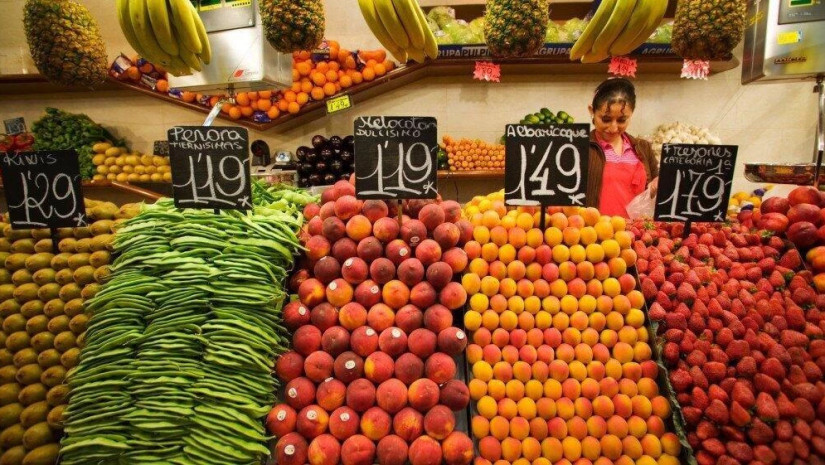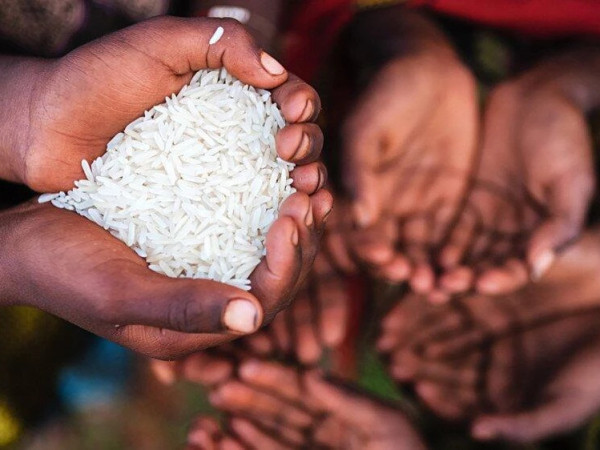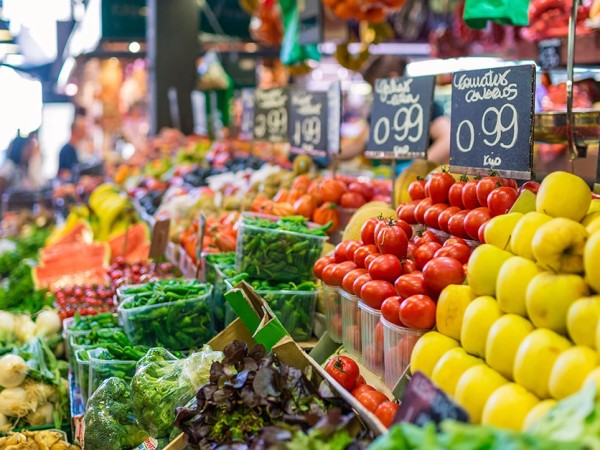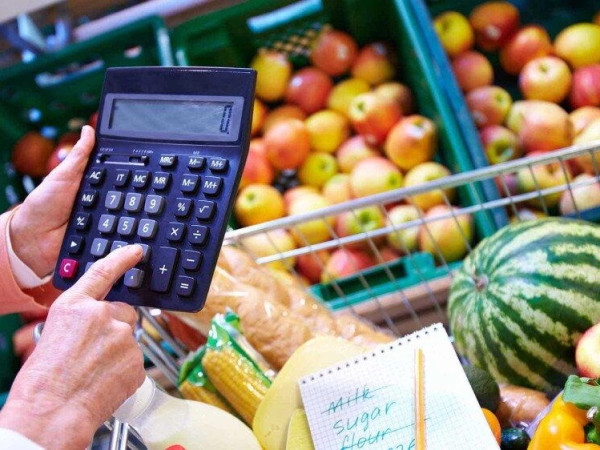After hitting a record high in March, food prices around the world have eased slightly in April, the U.N. food agency said Friday, but are still high due to the Ukraine war and global food security remains a concern because of the difficult market conditions.
International sanctions against Russia as well as export flow disruptions resulting from the Feb. 24 invasion have sparked fears of a global hunger crisis.
Russia and Ukraine, whose vast grain-growing regions are among the world's main breadbaskets, account for a huge share of the globe's exports in several major commodities, including wheat, vegetable oil and corn.
The Food and Agriculture Organization's (FAO) food price index, which tracks the most globally traded food commodities, averaged 158.5 points last month versus an upwardly revised 159.7 for March.
The March figure was previously put at 159.3.
“The small decrease in the index is a welcome relief, particularly for low-income food-deficit countries, but still, food prices remain close to their recent highs, reflecting persistent market tightness and posing a challenge to global food security for the most vulnerable,” said FAO Chief Economist Maximo Torero Cullen.
Although it declined month-over-month, the April index was 29.8% higher than a year earlier, pushed up in part by concerns over the impact of the Russian invasion of Ukraine.
The agency’s cereal price index fell 0.7% in April after a 17% jump in March. While maize prices dropped 3%, wheat prices rose 0.2%.
FAO said wheat was hit by the blockage of ports in Ukraine and worries over crop conditions in the United States however, these concerns were partially offset by larger shipments from India and higher-than-expected exports from Russia.
Nearly 25M tons of grain stuck in Ukraine
Separately, a FAO official said Friday that nearly 25 million tons of grains are stuck in Ukraine and unable to leave the country due to infrastructure challenges and blocked Black Sea ports, including Mariupol.
Ukraine had been the world's fourth-largest exporter of maize (corn) in the 2020/21 season and the number six wheat exporter, according to International Grains Council data.
"It's an almost grotesque situation we see at the moment in Ukraine with nearly 25 million tons of grain that could be exported but that cannot leave the country simply because of lack of infrastructure, the blockade of the ports," Josef Schmidhuber, FAO deputy director, Markets and Trade Division, told a Geneva press briefing via Zoom.
Schmidhuber said the full silos could result in storage shortages during the next harvest in July and August.
"Despite the war, the harvest conditions don’t look that dire. That could really mean there's not enough storage capacity in Ukraine, particularly if there's no wheat corridor opening up for export from Ukraine," he said.
Another concern is reports that some grain storage had been destroyed in the fighting in Ukraine, he added, without giving details.
Risk of malnutrition
FAO’s vegetable oil price index dropped 5.7% in April, as demand rationing pushed down prices for palm, sunflower and soy oils. Sugar prices increased 3.3%, the meat price index rose 2.2% and the dairy index added 0.9%.
In separate cereal supply and demand estimates on Friday, FAO slightly cut its projection of world wheat production in 2022 to 782 million tonnes, from 784 million last month.
The forecast factored in an expected 20% reduction in the harvested area in Ukraine and a projected decline in output in Morocco because of a drought in the north African state.
With almost all crops harvested, FAO’s world cereal production forecast for 2021 was unchanged at 2.799 billion tonnes, 0.8% up on 2020 levels.
The agency slightly increased its projection of global cereals trade in the 2021/22 marketing year to 473 million tonnes, up 3.7 million tonnes from last month's forecast but 1.2% below the 2020/21 record level.
FAO said the upward revision reflected stronger exports from Russia based on continued shipments in April, mostly to Egypt, Iran and Turkey.
FAO warned in March that food and feed prices could rise by up to 20% as a result of the conflict in Ukraine, raising the risk of increased malnutrition.
Earlier this week, the head of the World Trade Organization (WTO) told Reuters she was "seriously worried" about spiraling food prices and seeking solutions alongside other partners.
"It would really help the world if we could evacuate this grain (from Ukraine)," Ngozi Okonjo-Iweala said. "There's a serious risk of food prices going up and spiraling out of affordability that could lead to more hunger," Daily Sabah reports.















